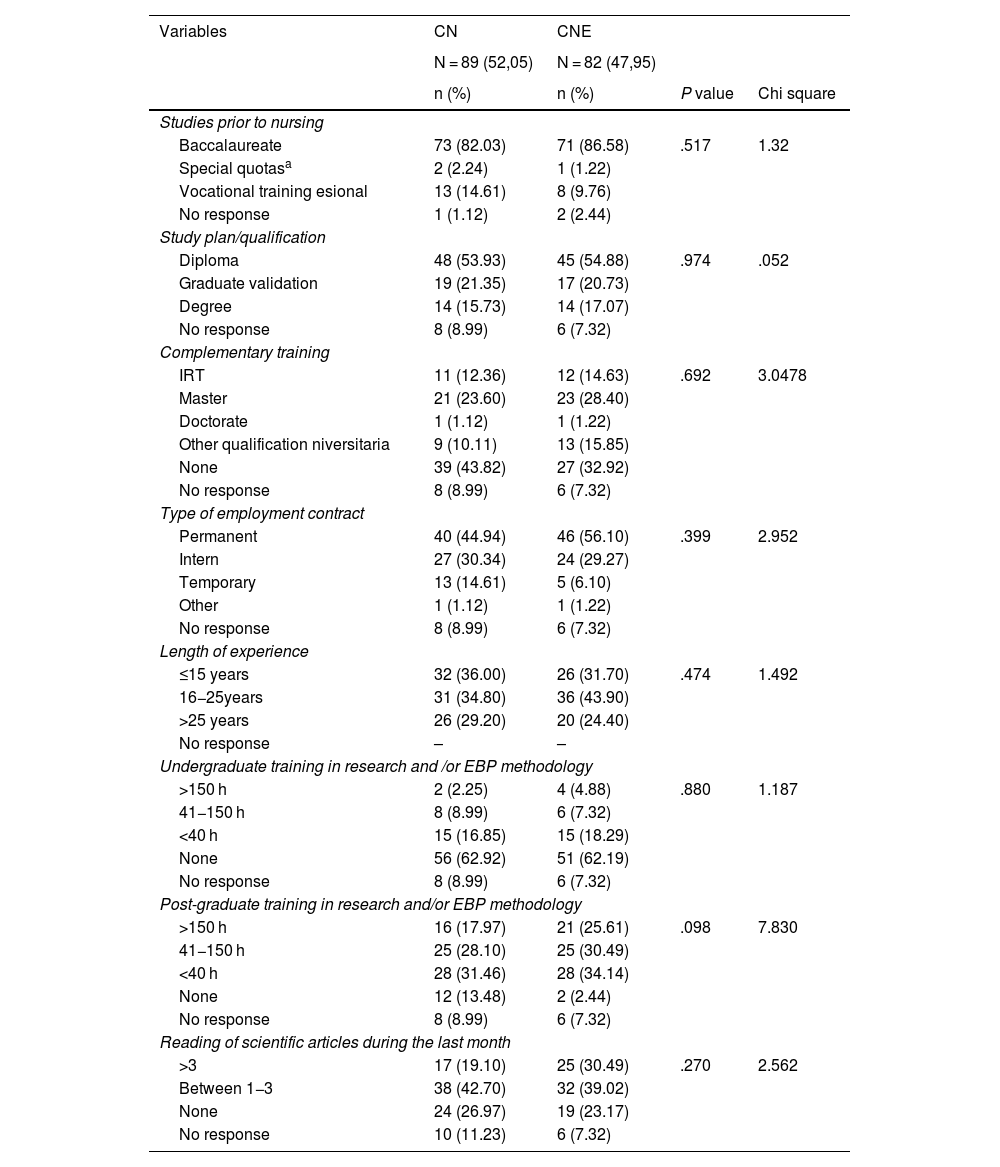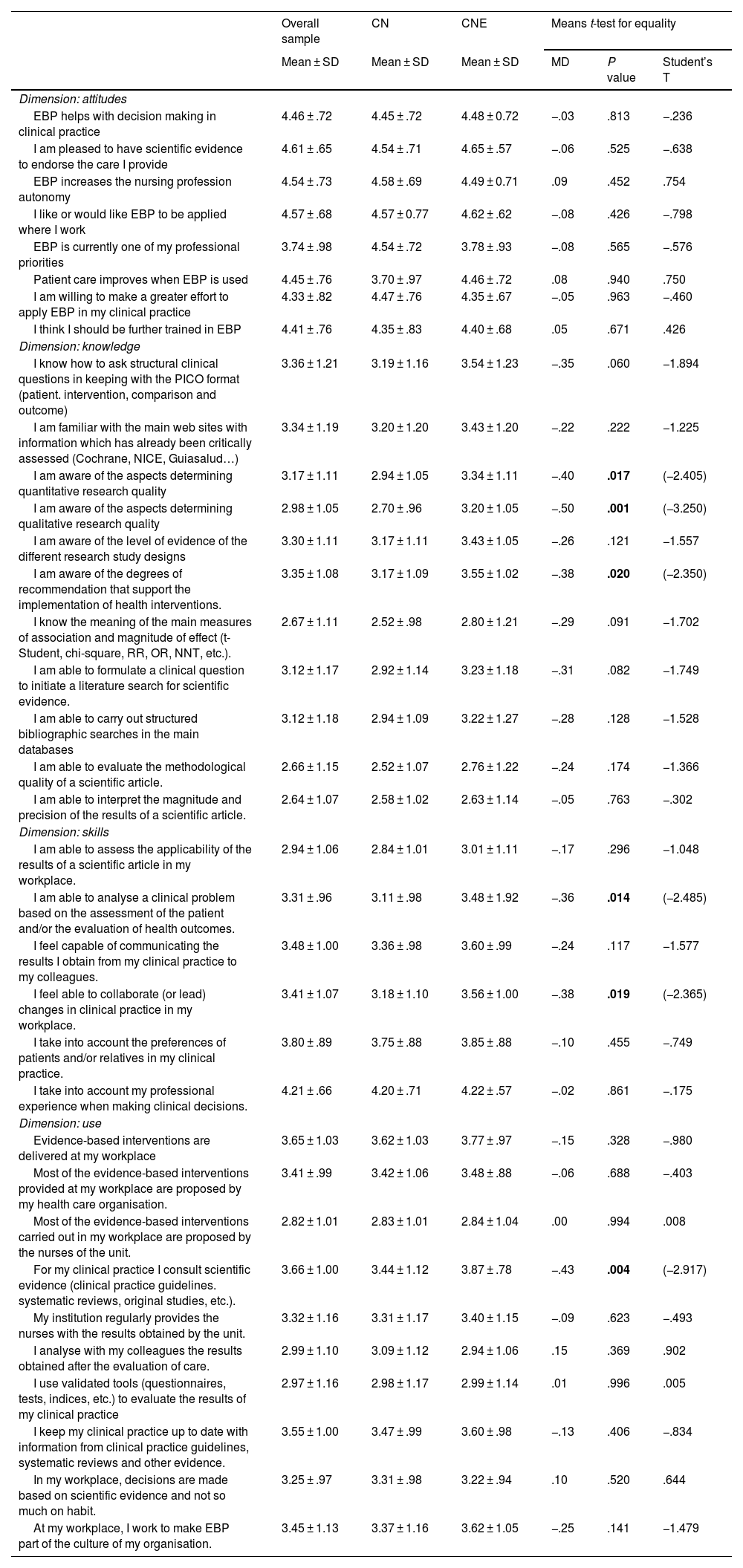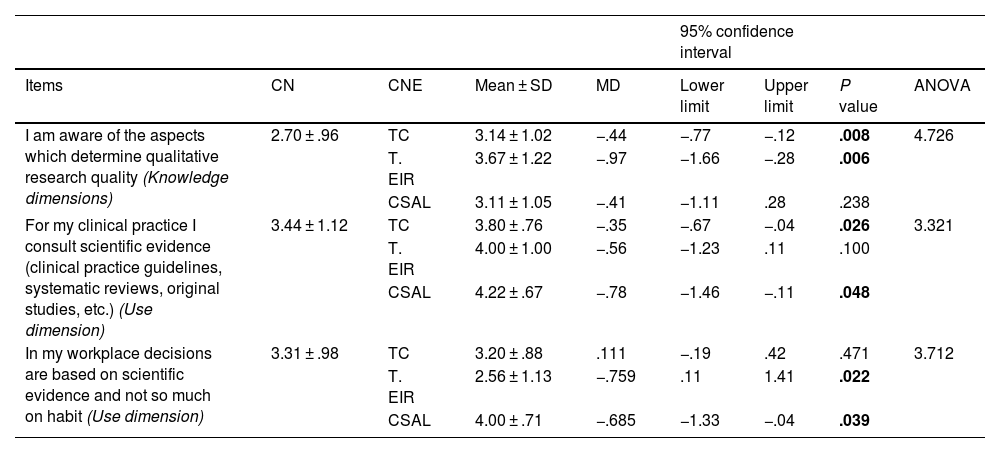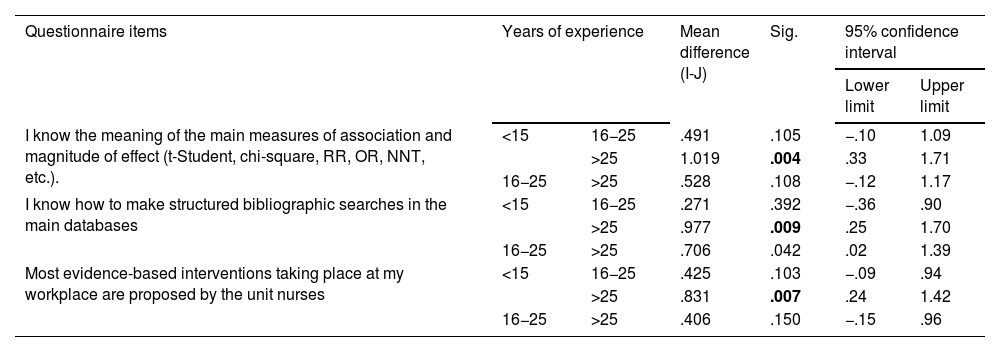To compare the evidence-based practice (EBP) self-perceived competences of clinical teacher nurses (CTN) versus clinical nurses (CN) to detect areas for improvement in practical training.
MethodA cross-sectional study by means of a self-assessment questionnaire sent to nurses of two public hospitals of Castilla y León was performed, between February to May 2020. Variables included competences in evidence based practice (EBP) - attitude, knowledge, skills and use-, sociodemographic, job, academic, teaching relations and training in investigation methodology and/or EBP. A validated questionnaire EBP-COQ prof© of 35 questions with answers type Likert (1, very disagree-5, very agree) was used. Data analysis (descriptive and bivariate) was performed by means SPSS v.24 program.
Results171 questionnaires were answered by nurses. CN 52%, CTN 48%. There were no significant differences between both groups regarding sociodemographic variables. Mean age was 43.6 ± 9.9 and 42.9 ± 8.5 for CN and CTN, respectively. Total sample showed a mean EBP competency score of 3.54 ± 1.00 (attitudes: 4.40 ± 0.60; knowledge: 3.08 ± 0.94; skills: 3.57 ± 0.66; utilization: 3.36 ± 0.75). The CTN group obtained higher mean scores in knowledge dimension, compared with CN (P = .02) and with total sample (P = .02). There were no significant differences in other dimensions.
ConclusionCTN showed better self-perceived competences scores only in the knowledge dimension compared with CN. Taking in account the level of responsibility they support in their daily practice, it would be advisable to design management strategies in order to improve attitudes, skills and utilize EBP, acting as professional role models for students and peer mentors.
Comparar las competencias autopercibidas en práctica basada en evidencia (PBE) de enfermeras clínico-docentes (ECD) vs enfermeras clínicas (EC) para detectar áreas de mejora en formación práctica y/o pregrado.
MétodoEstudio transversal mediante cuestionario a las enfermeras de dos hospitales públicos de Castilla y León, recogido de febrero a mayo de 2020. Las variables de estudio fueron competencias en práctica basada en la evidencia (PBE)-actitud, conocimientos, habilidades y utilización-, sociodemográficas, laborales, académicas, vinculación docente y formación en metodología de investigación y/o PBE. Se utilizó el cuestionario validado EBP-COQ prof© de 35 preguntas con respuestas tipo Likert (1 muy desacuerdo-5 muy de acuerdo). Se realizó análisis descriptivo y bivariante con SSPS v.24.
ResultadosSe analizaron 171 cuestionarios. El 52% eran EC frente al 48% ECD. No hubo diferencias significativas en ambos grupos respecto a las variables sociodemográficas. La media de edad fue: 43,6 ± 9,9 y 42,9 ± 8,5 para EC y ECD respectivamente. La muestra total mostró una puntuación media de competencias en PBE de 3,54 ± 1,00 (actitudes: 4,40 ± 0,60; conocimientos: 3,08 ± 0,94; habilidades: 3,57 ± 0,66; utilización: 3,36 ± 0,75). Las ECD obtuvieron puntuaciones medias más altas en la dimensión conocimientos, frente a las EC (P = ,02) y la muestra total (P = ,02). No hubo diferencias significativas en otras dimensiones.
ConclusionesLas ECD han mostrado mejores competencias en PBE solo en la dimensión conocimientos frente a EC. Dada la responsabilidad que soportan sería deseable diseñar estrategias de gestión para mejorar actitudes, habilidades y utilización en PBE, ya que actúan como modelos profesionales para estudiantes y mentores de pares.











